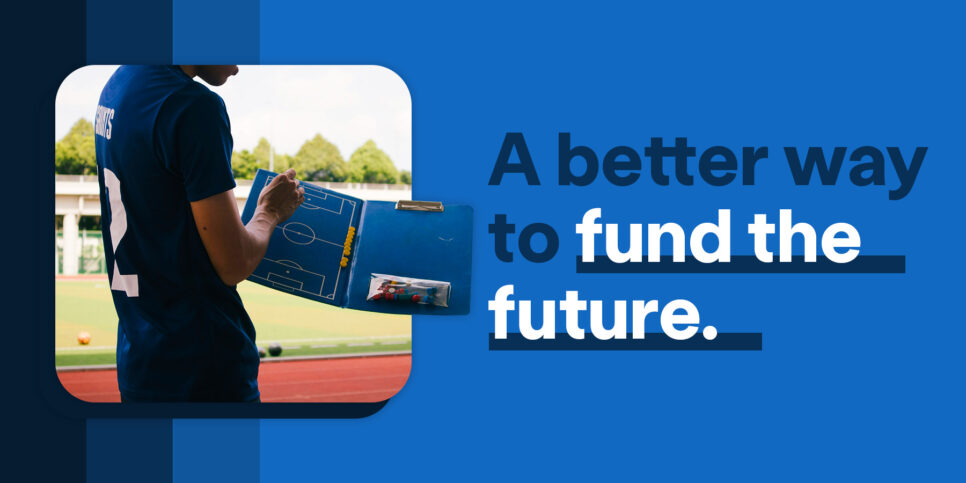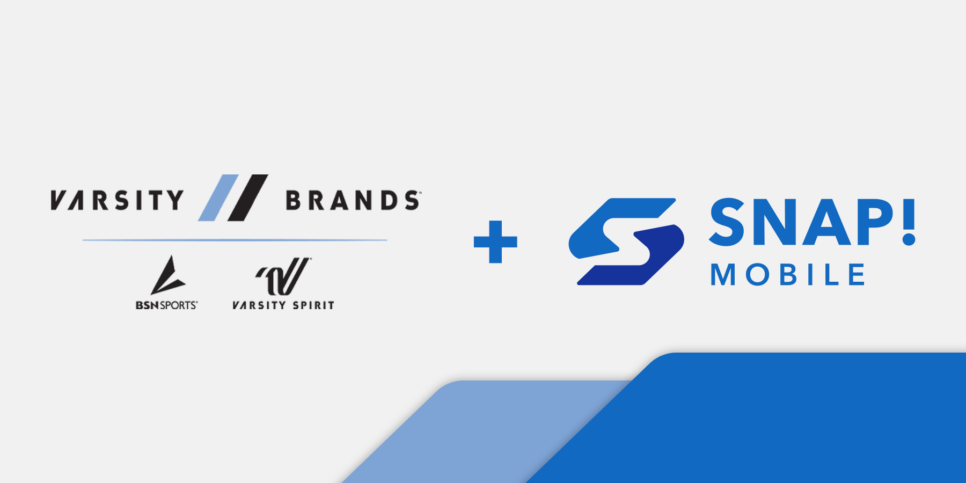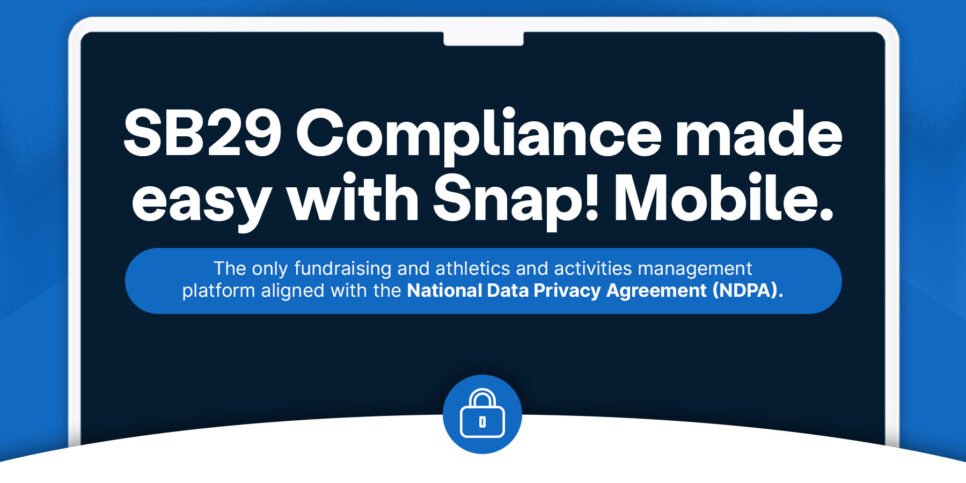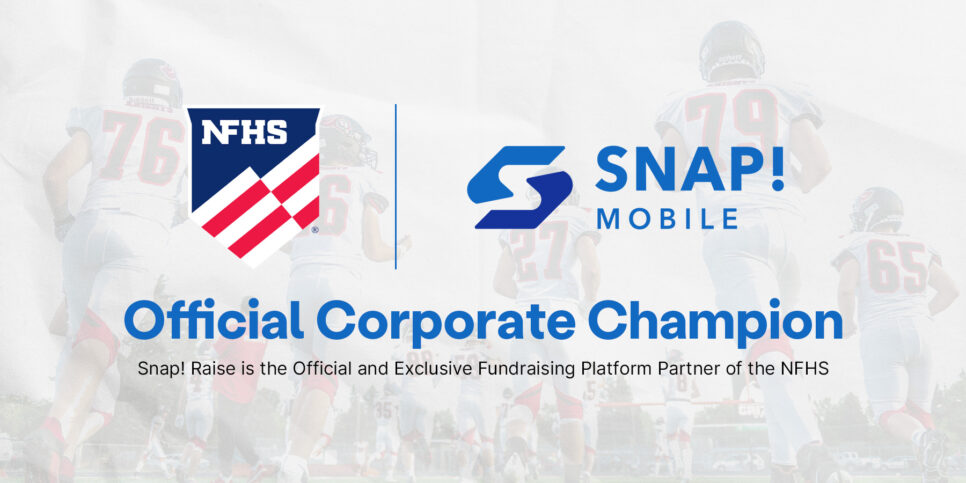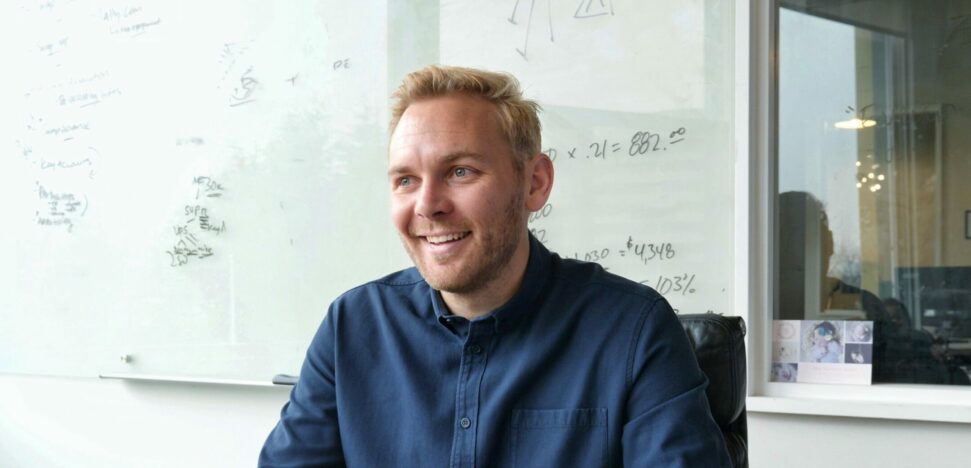

Authority Mag is committed to sharing interesting, empowering, and actionable stories from influential leaders in Business, Film, Sports and Tech to provide readers inspiration. In their recent interview with Cole Morgan, CEO of Snap! Raise, Authority Magazine shares his journey from Athlete to Entrepreneur and the top 5 work ethic lessons transferred from the field to the office.
Interviewed and written by Parveen Panwar, this article takes a deep dive into Cole’s background and passion for football, fundraising, and helping youth leaders.
Perseverance and tenacity — My college career was a roller coaster — it had a great ending, but it was not an easy journey. In all, I played at three colleges, sat out a year, not knowing if I’d play football again, didn’t get the starting QB position at Central, tried out for but didn’t make the Canadian League and many other disappointments along the way. But I never gave up and I worked hard as I loved football so much. Entrepreneurship is like that — there will be many ups and downs and you need to have the same ‘never quit’ mentality.
As a part of our series about the work ethic lessons we can learn from professional athletes, I had the pleasure of interviewing Cole Morgan.
Cole Morgan has tuned his passion for football into a multi-million-dollar business — Snap! Raise, the nation’s largest online fundraising solution for school teams and groups.
Cole’s passion from an early age was football. He was the star quarterback on his high school football team in Seattle and was rated in the top 100 of high school quarterbacks nationally. Cole went on to play for Washington State University and then finished out his college career at Central Washington University where the team was undefeated in the regular season, eventually losing in the playoffs to Northwest Missouri State, the team that went on to win the National Championship. At Central, Cole was voted Most Inspirational Player.
Coaches had a profound impact on his life. Post college he wanted to stay part of the high school sports world and help coaches and kids. He spent several years selling cookie dough and discount card fundraising programs to high schools. On a sales call, a former coach of his told him he liked him but not what he was selling. It was a wake-up call. The coach challenged him to find a better way to fundraise than door-to-door product sales.
He founded Snap!Raise to create a solution that enables youth coaches, educators, and program leaders to be better able to champion the leaders of tomorrow when unburdened by fundraising and administrative chores.
Cole has spent the last seven years building Snap! Raise into a juggernaut in the high school fundraising industry. It’s now the go-to fundraising platform of choice for more than 70,000 teams around the country, raising upwards of $350M.
Thank you so much for doing this with us! It is a great honor. Our readers would love to learn more about your personal background. Can you tell us the story of how you grew up?
My early years were spent in Pasco, a small town In Eastern Washington. My grandfather owned a sporting goods store and I spent a lot of time there. Grandpa helped make sure that I love sports. I was interested in all sports, still am. I love what sports represent. Because of the store, I had access to anything and everything I wanted — the store had a batting cage in the back and a golf net and equipment for every sport imaginable. I also have great memories of good times spent with Grandpa going around to different high schools to drop off equipment and helmets and chat with the coaches about their programs. We spent a lot of time going into coaches’ offices and hearing them talk about what they wanted to buy, but also what they wanted to do for their kids. I grew up hearing adult men and women talk about their dedication to their student-athletes, and that made a strong impression on me.
When I was little, my family moved to the greater Seattle area and that’s where I started playing football, first on a junior football team (the Ballard Junior Knights) and then later at Ballard High School. I had great, great coaches growing up. My first coach — Jack Thompson — became like a second father to me. He was my coach from the time I was 8 through Ballard High School. My high school coach, Doug Trainor was another huge influence. Coach T really instilled in me what leadership and dedication are.
I started my college career at Washington State University. Because of a change in coaching, it wasn’t meant for me to be, and I left and went to Western Washington University. Shortly thereafter they unexpectedly decided to drop the football program, so I sat out a year and then went to Central Washington. I wanted a chance to compete and play and close the book on football, as it had not been the experience that I had hoped it would be.
At Central, we had nine quarterbacks on the roster at that time. I didn’t initially win the starting job, so worked my tail off and at one point in the season came off the bench three times at halftime and helped Central to comeback wins in those games, and eventually got the starting job. We had a phenomenal year; we were undefeated and we were number one in the country. My last college football play was a two-minute drive to a touchdown with no time left, and that was my last ever football throw. A win would have sent us to the National Championship. But we lost as the extra point was blocked. The kicker had made 99 in a row. But not that time. We lost to a great team — Northwest Missouri State — who went on to win the National Championship.
What or who inspired you to pursue your career as a high-level professional athlete?
There wasn’t any one person…I was fortunate to have many great coaches who believed in me and encouraged me at every step along the way. And of course stories from them about their playing days were inspirational. For example, one of my coaches, Jack Thompson, aka ‘The Throwin’ Samoan’, was a Heisman candidate, played six seasons in the NFL, and went to a Super Bowl. That’s the stuff that dreams are made of. But as much as anything I absolutely loved the game and the comradery of the locker room and the joy of being with teammates and that’s what inspired me to pursue football beyond high school.
But, if there was one moment when I knew I wanted to pursue my dream as a high-level athlete it was when I was 10. Watching Tommie Frazier, the Senior quarterback for Nebraska play his final college game in the Tostitia’s Bowl, I knew I was watching something special. Frazier, on an option run to the right, broke a dozen tackles to run for a touchdown. His determination in that one play embodied his will to win by absolutely refusing to let his team lose. It was the most amazing physical manifestation of his mental state — his determination, and that run he made, was just a sight to behold.
None of us can achieve success without some help along the way. Was there a particular person who you feel gave you the most help or encouragement to be who you are today? Can you share a story about that?
Without a doubt, it’s Coach Trainor, my high school coach. It’s tough to say what he did specifically because he did everything.
His commitment to developing young men was really impactful to me. He was totally dedicated to his kids and believed in them. There’s never been a time when Coach T wasn’t there for me. From high school on. He’s shown up at every point in my life. When my house flooded in college, I lived with him and his family for months. Another time I got a chance to try out with the Canadian League as I thought it would get me two more years of eligibility. The training facility was in Southern California, so I went down there and trained for two months for a try-out. I quit my job to go there, I had no money and didn’t have any way to pay for the training, and Coach T paid for it. When I started Snap! Raise, he was one of the very first investors. I told him I was starting a company and wanted to make sure he didn’t have to sell discount books and cookie dough ever again and he gave us a loan out of his daughter’s college fund.
Can you share the funniest or most interesting mistake that occurred to you in the course of your sports career? What lesson or takeaway did you learn from that?
It’s not funny but it certainly was the most bone-headed move I ever made. All my life I had dreamt about playing in the Rose Bowl. In my freshman year at WSU, I was the backup quarterback and we were preparing to play UCLA. It wasn’t the Rose Bowl, but it would have been the opportunity to run through the tunnel and out onto the field at the stadium. It doesn’t get much better than that for a kid who adored college football. It was Labor Day weekend. We played a game on Saturday, we did our workout on Sunday. Typically we would have practice on Mondays, but as it was Labor Day I assumed we weren’t practicing. Wrong. I got a call from my coach asking where I was and I told him I was at home with Grandpa in Pasco, 125 miles from WSU. He said “What the hell are you doing in Pasco? You missed our quarterback meeting.” When I explained I assumed there was no meeting because of the holiday, his response was, “Do you think UCLA gives a shit about Labor Day? We have practice in an hour, be here.” Grandpa and I jumped in the car, he drove me back to WSU and I made part of the practice.
The UCLA game was the following weekend, but I didn’t get to go to the game. I actually lost my spot on the roster because of that mistake. From that, I learned not to be presumptuous and to be more diligent. And the biggest lesson of all was accepting the consequences of my actions.
OK, thank you for all of that. Let’s now shift to the core focus of our interview. As an athlete, you often face high-stakes situations that involve a lot of pressure. Most of us tend to wither in the face of such pressure and stress. Can you share with our readers 3 or 4 strategies that you use to optimize your mind for peak performance before high-pressure, high-stress situations?
Handling stressful situations is all about preparation and then being in the moment — all things I learned from football.
For game prep, you not only have to study the opposition and what they’ve done in the past, you also have to prepare for almost every eventuality. That preparation allows you to react to any situation. For example, there are looks that a defense can give you that you can’t beat with what you are prepared to do for that week, so you have to be ready to shift.
Football also teaches you to be in the moment. You learn to divorce yourself from the next thing and focus on the moment, to be where your feet are — it’s a mantra I learned from Russell Wilson and I remind myself of it all the time. If you start thinking too far down the road, then that’s when the wheels fall off. It literally grounds you in a very physical and metaphysical way and keeps you at that moment. Blocking out the extraneous and having that laser focus really helps in high-stress situations.
Before any big meeting — with potential investors, my board, or an all-hands meeting — I prepare like crazy and then I’m ready to be fully in the moment and for anything that comes at me.
Football also taught me that nothing great has ever been accomplished individually, so understanding that while I may be ultimately responsible for where our company goes, I can’t accomplish our goals by myself, I can’t throw a pass to myself. Surrounding myself with a team of great people with complementary skill sets greatly reduces the stress of any situation or business decision.
Can you tell us the story of your transition from a professional athlete to a successful business person?
I come from a long line of entrepreneurs, both my grandfathers, my parents, and my aunt and uncle had their own businesses. I never really had a goal to have a corporate career, I always felt like I was going to chart my own path. After college, one of my first entrepreneurial ventures (an eye-tracking technology for improving athletic performance) failed. When it didn’t work, I ended up going to coach football with Coach T as the offensive coordinator at Bellingham High School where he was at the time. While there, I learned about an opportunity to rep a line of fundraising products — discount cards, entertainment books, cookie dough, etc. At the time I saw it as a way to be entrepreneurial and to help coaches like Coach T and impact kids.
About two years in, a coach who I considered a friend said “Cole, my kids love you, my coaches love you, I love you. But every time we see you, we’re afraid that means we’re going to have to do something we don’t want to do which is sell a product to our communities that they don’t want. You’re young enough, you’re smart enough, I dare you to try to change the system.” Just like any coach I’d ever had, he challenged me to figure out a way to improve a situation. His visceral reaction to what I was doing was not who I wanted to be, but I had never really thought about the business side of cookies and how it affected their teams. Cookies and the like were taking a huge margin and were an incredibly time-consuming way to fundraise. It was making coaches’ and parents’ and kids’ lives harder and more stressful, not easier which is what I had intended. If my goal really was to help these coaches and teams then I had to figure out a way to do it better, so that’s how Snap! Raise came about.
I’ve had such a great line of coaches that I truly feel like my mission in the world is to help them. It’s what guides me as we build Snap! Raise. I tell my team all the time “We need to be a company that’s rooting for our coaches, the way that our coaches are rooting for their kids.”
What are some of the most interesting or exciting new projects you are working on now?
I’m excited about the fact that we’re building and creating a new category of software that schools have never really seen before, tools that will help coaches organize and advance their programs in ways that they never thought possible and will help make their lives easier, which has been our mission from the start.
There are about 30 jobs that a coach inherits when they take over a high school coaching job or a band or cheer director job, and about 15 or 16 of those are technical job requirements and/or tasks that we can streamline with technology. We’re building tools to help them build their budgets, communicate with their programs, manage their rosters, get the gear out to their students, and the myriad of things that are involved in running a program. We’re looking at templatizing all of those things that they inherit so that they can focus on the things that they do best, which is building the lives of their kids and being the champion for their students.
The Snap! Insights tool will include transparent budgeting and reporting tools for administrators and coaches. On the back end of Snap! Raise there will be tools that allow coaches to engage with their students more efficiently, all things that have been learned through our fundraising campaigns. So, whether that’s communication, organization, fundraising, or event-based stuff, there are going to be a lot of products and tools coming out.
Additionally, our goal is software that can be handed from coach to coach, similar to the way that uniforms are. On average, a coach lasts two and a half years, and the incoming coach has to start all over again, rebuilding the program. With templates, best practices, and legacy software, that transition will be much easier, and new coaches and group leaders will be able to focus on developing their kids vs. getting bogged down reinventing the wheel on the endless administrative details of their programs.
Do you think your experience as a professional athlete gave you skills that make you a better entrepreneur? Can you give a story or example about what you mean?
Yes! I’ve learned that real success only happens when everyone has a role, knows it, and is held accountable for their actions and decisions — good and bad. Great teams, just like great companies, are built on trust making sure the right people do the right things. It might sound like a bit of a cliche, but it’s a simple lesson learned in sports that I come back to often. As people grow their personal and professional skills it’s vital that their roles evolve and change. It’s not unlike a player who excels in one facet of the game and works hard to develop new skills in another facet. A great leader looks for ways to put that person in a position to succeed, no matter what role they may have done in the past.
At the end of the day, great leadership is about adaptation and knowing how to play to your strengths and the strengths of those around you.
Ok. Here is the main question of our interview. Entrepreneurs and professional athletes share a common “hustle culture”. Can you share your “5 Work Ethic Lessons That Entrepreneurs Can Learn From Athletes”? Please share a story or an example for each.
1. Preparation
I mentioned preparation before and it’s by far the number one work ethic I learned as an athlete. I can clearly remember a moment when a play was called for me for the A-Gap where the other team had brought a linebacker into the gap. Having studied the opposition’s game film intently, I knew that the opposing linebacker loved to blitz the A-gap before the play started, then switch and blitz on the other side of the line in specific situations. I had watched so many films about this guy’s behavior that I knew that what he was showing me wasn’t real. I was prepared for that moment so I actually ran where he was knowing he was going to leave. That play resulted in a touchdown and ultimately the victory.
He came up to me after the game and said, “How did you know that? “And I said, “Three weeks ago, you did that same play and you blitzed the C-Gap.” So for important meetings like Board meetings, I think of the audience as being the defense and I prepare for any eventuality to ensure successful outcomes.
2. Perseverance and tenacity
My college career was a roller coaster — it had a great ending, but it was not an easy journey. In all, I played at three colleges, sat out a year, not knowing if I’d play football again, didn’t get the starting QB position at Central, tried out for but didn’t make the Canadian League, and had many other disappointments along the way. But I never gave up and I worked hard as I loved football so much. Entrepreneurship is like that — there will be many ups and downs and you need to have the same ‘never quit’ mentality.
3. Learn from losing
As a company, we’ve been through a lot of highs and lows and as an athlete, it was the same thing. We won games we should have lost, and lost games we should have won. But as Coach T taught me, there are no bad moments, they’re all just teaching moments. They’re only bad moments if you don’t learn from them. As an athlete you review and discuss the film with your team and coaches to dissect why you lost, and what you can learn and apply to the next game. As an entrepreneur, you need to do the same thing. Your mindset needs to be “Well, it may suck today, but what did we learn and how can we use it to help us achieve our goal in two years?”
4. But play to win
As an athlete you play to win; be it the next play, the game, the series, the championship. Competition is the culmination of training, the thrill of improvisation, and a crash course in emotional management rolled into one. And it’s all in service of one objective — victory. Through competition, you learn quickly that there are many other talented players and teams out there that want to win just as much as you do. It’s this understanding that should serve as a daily reminder to push yourself and those around you to be their best, and stay focused on the long-term prize, winning.
5. Work hard and be honest
It should go without saying that there’s no substitute for hard work. Put in the time needed to get the job done. But, don’t be a jerk in the process — life is short and the world is small, and at the end of the day your reputation as an athlete, an entrepreneur, or a CEO is all you have. Don’t squander it.
What would you advise a young person who aspires to follow in your footsteps and emulate your career? What advice would you give?
If you want to be an entrepreneur, have an honest dialogue with yourself. Trust what your instincts are telling you, but at the same time don’t try to manufacture a truth that you want to be there or engineer the outcome you want. Make sure you are solving a problem and creating a product or solution that customers really want.
As you build your company, focus on the team. Teams need leaders and role players and they are both of equal importance, but you don’t win without both or with the wrong people in the wrong role. Don’t just prioritize the stars — the full-back never gets a ton of credit but without him or her, the running back doesn’t go anywhere. If everybody understands their own best ability and if the coaching staff/leadership understands it too, you’ll get to your goal.
You are by all accounts a very successful person. How have you used your success to bring goodness to the world?
I think what Snap! Raise does and who we help is really important, and if we focus on growing Snap! Raise quickly, that means we help more coaches, that means more coaches help more kids. This isn’t meant to be a shameless plug for Snap! Raise. When leaders are supported, they build into their kids. The kids are better members of society — and our society is better for it. I truly believe that by keeping Snap! Raise focused on its mission, the more goodness there will be in the world and I don’t really have another mission outside of that.
You are a person of enormous influence. If you could inspire a movement that would bring the most amount of good to the most amount of people, what would that be? You never know what your idea can trigger. 🙂
If I were to inspire a movement, it would be to encourage people to engage with today’s youth. Positive experiences in kids’ developmental years pay dividends for the future. Be a role model — kids take inspiration from their role models. You can have a better impact on tomorrow by helping shape the lives of kids today.
In fact, I’m working hard to create a company that helps inspire this movement and empower more people to want to coach at the youth level. Every kid needs a champion coach in their corner, a person who’s there to pick you up when you’re down or call you out for not trying hard enough. Sometimes that little bit of encouragement from a mentor can change a kid’s life for the better. We should all be so lucky to have had that experience as kids.
Can you share your favorite “Life Lesson Quote”? Why does that resonate with you so much?
“If your goals are what they are, then your choices are predetermined.” This is a quote that I love from Trevor Moawad, a well-known mental conditioning coach to professional athletes, collegiate coaches, and CEOs alike.
If you want to accomplish a goal, and you mean it, then making the decisions necessary to achieve it is simple. If you struggle to make the decisions necessary to create success, then the goal is wrong because you’re not committed. Simple and powerful — set the right goals that lead to easy decisions and success will follow.
We are very blessed that some of the biggest names in Business, VC funding, Sports, and Entertainment read this column. Is there a person in the world, or in the US whom you would love to have a private breakfast or lunch with, and why? He or she might just see this, especially if we both tag them 🙂
I’d have to pick two: Bill Belichick and Barack Obama. Belichick, because I really admire that he’s built a culture that’s about ‘we’ and not ‘me’, and the consistency of which he’s done that in a time in which athletes are very much about themselves and building a personal brand. And Obama for his ability to address the public with poise, confidence, and humility and the courage under fire aspect of the way he was able to present to the country when he did. Knowing the things that were going on in the world, I think it’s pretty incredible.



